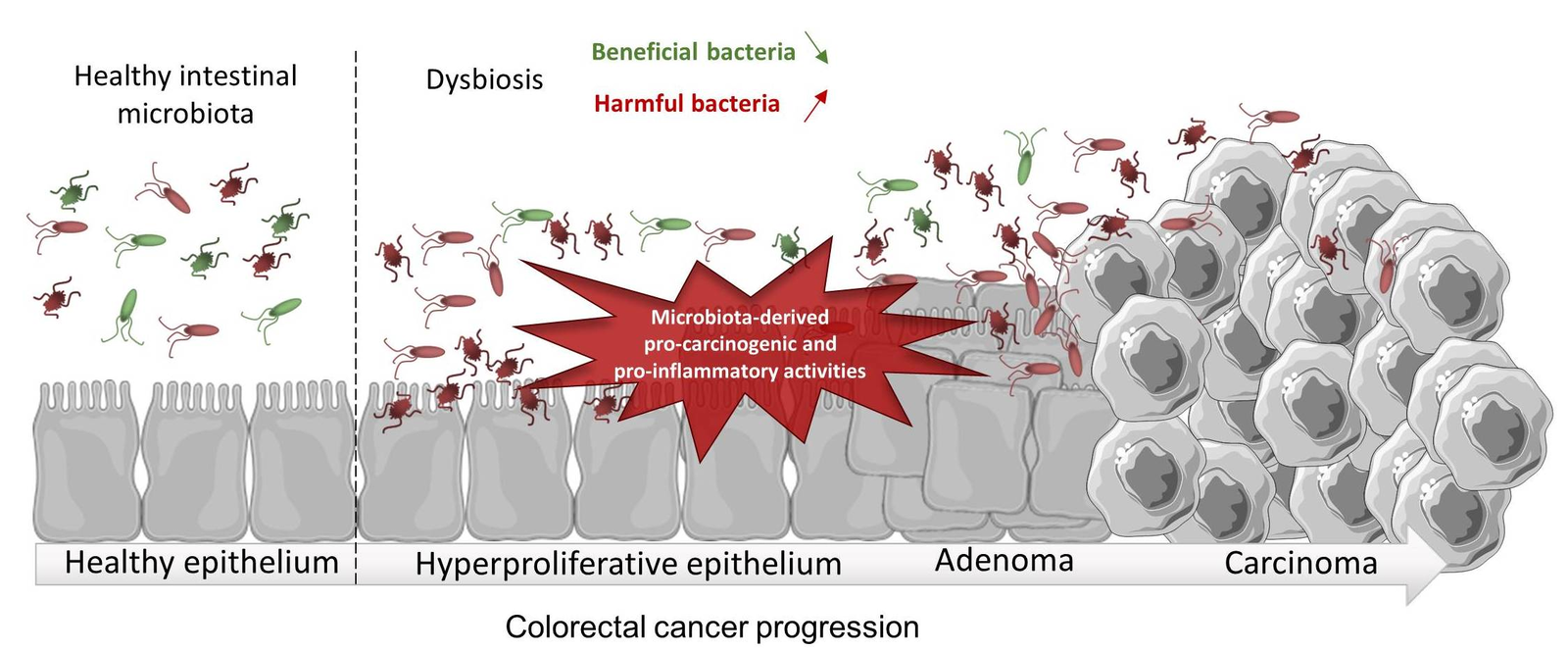By Kaiyue (Amanda) Fang '22
Colorectal cancer is the third most common cancer in the world. If the diagnosis is timely, the cure rate can reach 95%, so early diagnosis is important. Recent research by the European Molecular Biology Laboratory (EMBL) has found that the analysis of intestinal bacteria can be used to effectively predict colorectal cancer in different populations. The main result is a computational analysis of gut bacteria in colon cancer patients, independent of geographic location and other extraneous factors.
 Researchers looked for signs of microbes associated with colon cancer. Using machine learning, multiple such signatures were found. The team found that the richness of intestinal bacteria in patients with colon cancer was much higher than that in healthy controls. For example, the number of common oral bacteria (Clostridium nucleatum) in patients was higher than that in the control group. Although it is not clear why the oral bacteria migrate to the intestine, C. nucleatum can cause intestinal inflammation after entering the intestine and is thought to be a potential cause of cancer. Researchers found 16 bacteria associated with colorectal cancer.
Researchers looked for signs of microbes associated with colon cancer. Using machine learning, multiple such signatures were found. The team found that the richness of intestinal bacteria in patients with colon cancer was much higher than that in healthy controls. For example, the number of common oral bacteria (Clostridium nucleatum) in patients was higher than that in the control group. Although it is not clear why the oral bacteria migrate to the intestine, C. nucleatum can cause intestinal inflammation after entering the intestine and is thought to be a potential cause of cancer. Researchers found 16 bacteria associated with colorectal cancer.
In addition, the researchers also found higher levels of an enzyme called choline trimethylamine lyase in stool samples of patients with colorectal cancer than in the control group. Choline is a nutrient found in red meat and other high-fat foods. When enzymes break down choline, they release carcinogenic acetaldehyde. This suggests that the choline metabolism of intestinal bacteria is associated with colorectal cancer.
This discovery can inform research on the prevention and treatment of colorectal cancer. Because of the predictive power of the signatures found from the machine learning analysis, Georg Zeller (a member of EMBL) anticipates the usage of these signatures for non-invasive cancer screening. This research and previous ones show new ways in which microbes might contribute to cancer development. Therefore, scientists are starting to consider ways to prevent certain species from colonising our gut, presenting a direction for future research.
Sources:
https://www.webmd.com/colorectal-cancer/default.htm
https://medicalxpress.com/news/2019-04-intestinal-bacteria-occurrence-colorectal-cancer.html
https://medicalxpress.com/news/2019-04-global-microbial-signatures-colorectal-cancer.html